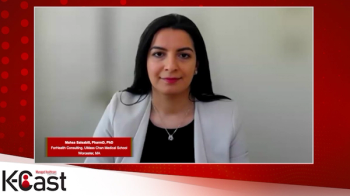
Researchers Develop Machine-Learning Model That Predicts Weight Loss Post-Bariatric Surgery
The first-ever machine learning-based model was developed to provide preoperative predictions of weight trajectories up to 5 years after surgery, simultaneously for three of the most common types of bariatric surgery.
A machine learning-based model was developed by a team of researchers at the University of Lille in Lille, Hauts-de-France, that predicts individual weight-loss trajectories up to five years after bariatric surgery.
According to a
Bariatric surgery, a life-changing procedure for individuals struggling with obesity, has long been a subject of interest for medical researchers and healthcare providers. It’s been proven to be an effective treatment for sustained weight loss, resulting in long-term improvement in obesity-related complications, and prolonged life expectancy. The surgery is also significant at a time where obesity has increased globally over the past two decades.
Researchers claim it’s challenging to forecast weight loss outcomes following surgeries as weight loss can change over time and varies between procedures and between individuals. They added a reasonable estimation of the expected weight loss trajectory after bariatric surgery would help inform clinical decisions by patients and health-care providers.
Machine learning methods have the potential to discover subtle, non-linear patterns in data that are often not accessible using traditional approaches such as logistic regression, the study said. In fact, machine learning models have outperformed logistic regression using National Surgical Quality Improvement Program data.
Researchers developed the model through the multinational retrospective observational study with over 10,000 enrolled adult participants 18 years and older from two medical centers in France, ten prospective cohorts, the Swedish Obese Subjects study, a large cohort from the Dutch Obesity Clinic and two randomized trials in Europe, United States, and Asia.
Patients with a previous history of bariatric surgery or large delays between scheduled and actual visits were excluded. Seven variables were observed in patients: height, weight, intervention type, age, diabetes status, diabetes duration, and smoking status.
The model was developed using machine-learning approaches, notably LASSO and CART algorithms. These methods enable the identification of non-linear relationships and non-parametric models, offering a more comprehensive and accurate understanding of weight loss prediction, researchers claim.
The performances of the model were assessed through the median absolute deviation (MAD) and root mean squared error (RMSE) of BMI.
Among participants in 12 cohorts, 7,701 (75·3%) were female, 2,530 (24·7%) were male. At 5 years, across external testing cohorts the overall mean MAD BMI was 2·8 kg/m² (95% CI 2·6–3·0) and mean RMSE BMI was 4·7 kg/m² (4·4–5·0), and the mean difference between predicted and observed BMI was –0·3 kg/m² (SD 4·7).
One of the standout findings from this study is the relationship between diabetes status and weight loss.
The duration of diabetes was associated with reduced weight loss after surgery. This highlights the importance of considering not only diabetes status but also its duration when evaluating bariatric surgery candidates, researchers stated.
In addition, the model highlights the role of smoking in weight loss trajectories, more specifically during the first year following surgery. Earlier studies have shown mixed results regarding the impact of smoking on weight loss.
The study also has limitations as it relies on a limited set of clinical features, leaving room for potential improvement with more advanced algorithms. It also doesn’t consider socioeconomic, ethnic, behavioral, and nutritional factors that could influence weight loss trajectories.
The study's focus on three bariatric surgeries may not fully represent emerging procedures. Researchers suggest further research is needed to test if the model applies to diverse populations.
Newsletter
Get the latest industry news, event updates, and more from Managed healthcare Executive.




















